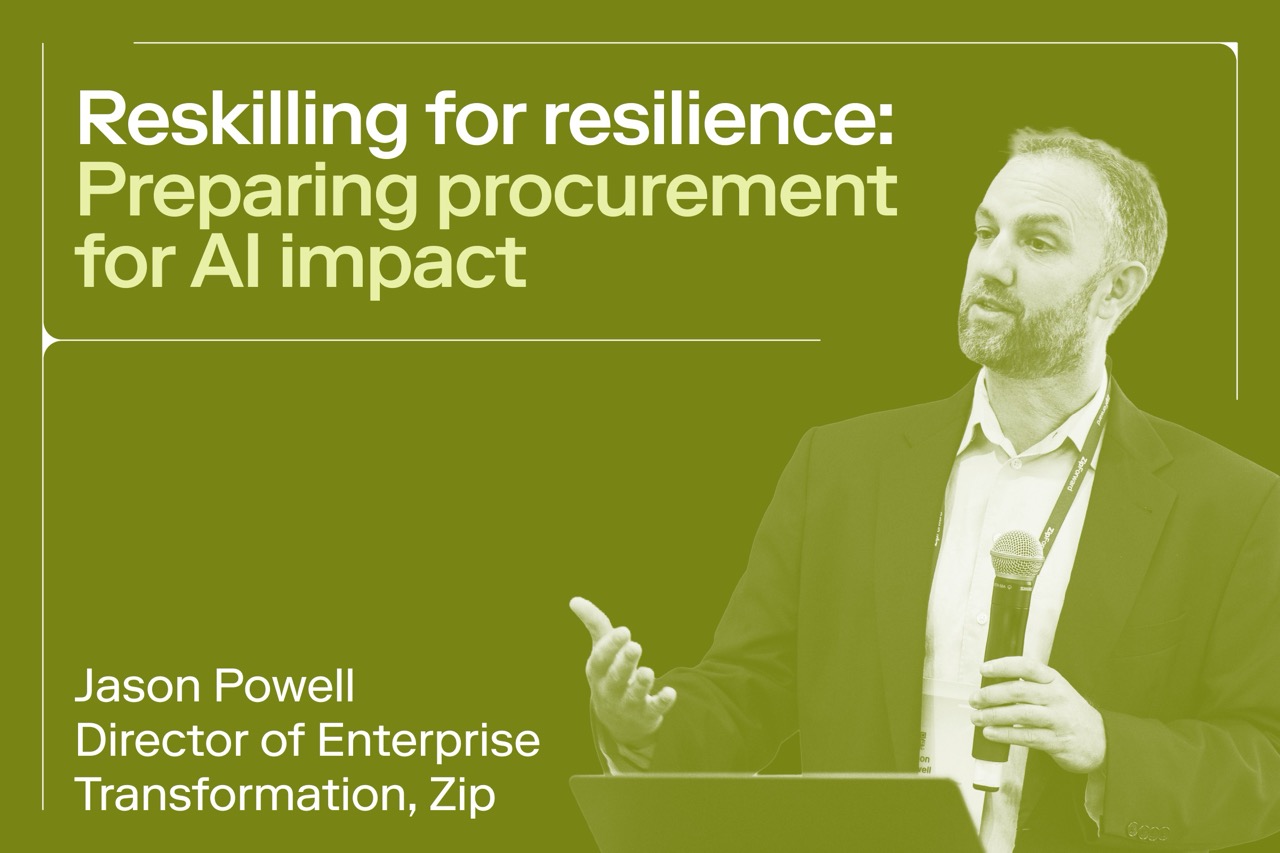
Reskilling for resilience: Preparing procurement for AI impact
State of Spend data reveals the urgency of reskilling procurement.

I learned one of my most important leadership lessons the hard way. My team was approaching full capacity and I knew I needed to request additional headcount, but I waited. And waited.
By the time I finally asked (and was granted the headcount) I had a new problem: I was already underwater. I didn’t have time to write the job description, define the skill sets, draft interview questions, or coordinate with the interview panel. What should have been a straightforward hire turned into a three of four month delay, all because I let things slip too far, for too long.
I've been thinking about that experience a lot lately as I read through Zip’s new State of Spend report, which surveyed 1,030 global leaders about their procurement priorities and how AI is reshaping their operations. I’m seeing parallels.
The data shows that procurement teams are facing a fundamental shift in required capabilities over the next three years, with AI and automation fluency rising to the top of the priority list. And yet, I'm seeing many organizations make the same mistake I made: waiting until they're already overwhelmed before investing in the transformation.

The skills gap that nobody’s talking about
Here’s what I find interesting about the State of Spend findings: at first glance, it appears that procurement systems expertise is declining as a priority. But I'd argue that's not actually what's happening. The procurement systems themselves have changed, so it’s the question itself that’s become misleading.
What we're really seeing is an evolution in what "procurement systems expertise" means. We're moving into an era of low-code and no-code environments, with tools like Zip orchestration and customizable AI agents that shift the onus of managing these systems from IT departments into the functional teams that actually use them. IT might have the technological skills, but they don't necessarily have expertise in the procurement process itself.
So the skill hasn't become less important, it’s simply transformed. And the skills required to leverage today's procurement systems are centered around AI and automation fluency. That's the bigger portion of what procurement professionals need now.
How to transform tactical teams into strategic operators
The State of Spend also reveals an increased focus on supplier relationship and performance management over the next three years. This isn’t surprising, as it’s something everyone’s wanted to prioritize for a long time. But what’s been keeping it perpetually deferred is simply time. Or more specifically, the lack of time.
The promise of AI and automation is that it can free up bandwidth by handling more transactional work, allowing team members to focus on strategic initiatives like supplier relationship management and performance management. And that's genuinely exciting. But the challenge that keeps me up at night is this: the skill set required for strategic work is fundamentally different from tactical work.
So what does that mean? It means if you're transitioning from a tactical role to a strategic one, you may be on the wrong team.
It's a different skill set, plain and simple. I’m not trying to criticize your existing team members or their abilities, but it's just reality. Someone who excels at processing purchase orders may not naturally excel at strategic supplier negotiations or relationship management. And that's okay, but it means you need to think carefully about reskilling, upskilling, and potentially restructuring your team.
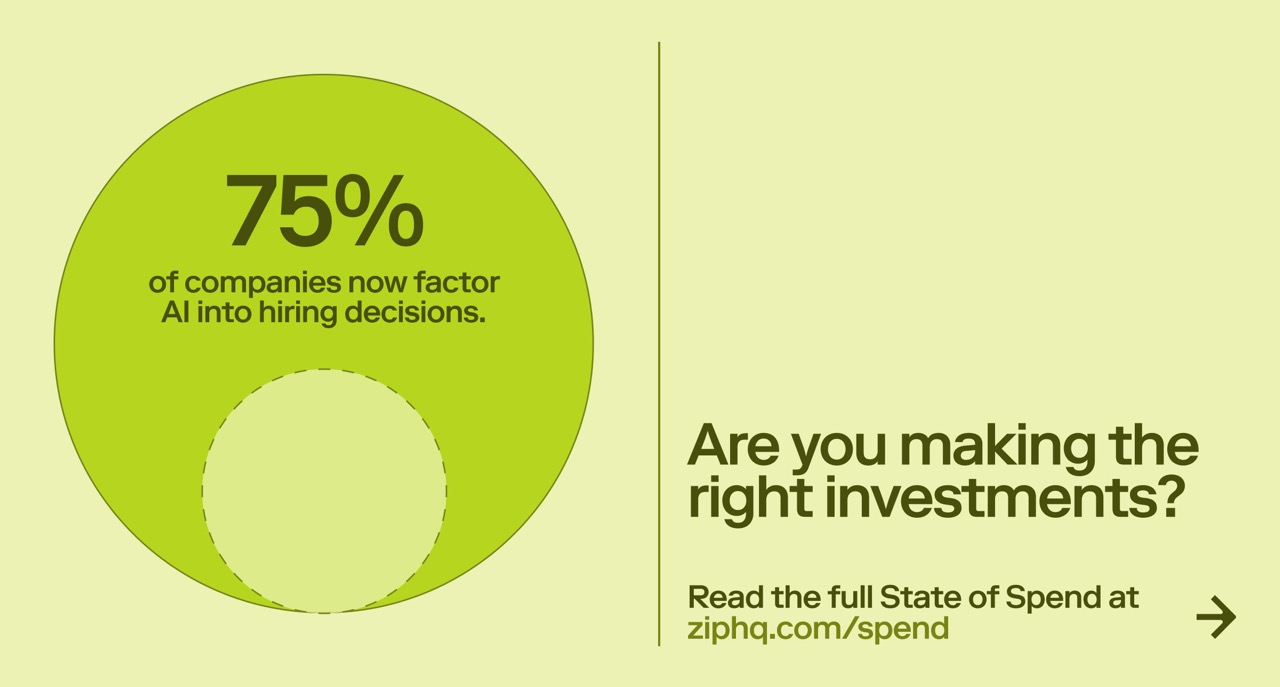
Here’s the competitive disadvantage of waiting
Look, I get it. AI is the buzz right now because we’re all constantly hearing stories of how it’s going to make everything way more efficient (though how and if that plays itself exactly as advertised remains to be seen). I think there’s no denying it’s going to have some sort of effect, we just don’t fully understand the degree yet.
But here’s what I do know: if you snooze and you don't hire someone that has the skill set to really fully take advantage of these tools that are now available, you're going to be left behind.
This is a clear example of competitive advantage. If I can reduce my overhead and G&A costs by not having to hire quite so many people to manage a process, that enables me to either be more profitable in general, or at least at a high level be able to take more of our resources and invest them in engineering and product development.
And the larger your organization gets, the more magnified this becomes. Maybe this isn't as critical for commercial-level operations, but as you move into strategic and enterprise-level procurement, these things become bigger and bigger and more and more complicated and take more and more time to manage.
The time to act is now, because later is too late
As companies grow, there's a common pattern: you don't add headcount proportionally to cover the additional growth. That just causes you to get more and more underwater, which then causes you to not have the time necessary to do these transformational efforts.
Sound familiar? It should. It's exactly the trap I fell into with that hiring delay.
The reason to invest in reskilling now (not next quarter, not next year) is because other companies are doing it right now. If you want to stay competitive, you're going to have to take advantage of these capabilities. Having the proper resources with the right skill set is going to be key in ensuring you can leverage these tools effectively.
The window for building this capability is while you still have some bandwidth. It's easier to get in front of it when you're not underwater and you have a little bit of bandwidth to do it than to wait until you, and everyone else, are already further down the road.
Once you're drowning in day-to-day operations, you won't have the time to recruit, train, and transform your team. And by then, your competitors will already be reaping the benefits.
The State of Spend shows us the path forward (it’s right in front of us)
Read through the State of Spend if you can, because it really makes this clear: the procurement function is undergoing a fundamental transformation right now. The skills that made procurement professionals successful five years ago aren't the same skills that will drive success over the next three years. AI and automation fluency, combined with strategic supplier relationship capabilities, are now table stakes.
My advice? Don't wait until you're underwater to make the investment.
Start identifying the gaps in your team's capabilities now. Begin upskilling your existing team members where possible, and start recruiting for AI-fluent procurement professionals who can bridge the gap between technology and process expertise. Create the bandwidth you'll need to manage this transformation by getting ahead of what’s coming.
We even created a guide to help you with this: Building the Procurement Organization of 2030
The companies that move now will have a genuine competitive advantage in how they operate, how they allocate resources, and how quickly they can take things from ideation to market.
The companies that wait will be playing catch-up for years.
Want to dive deeper into how procurement priorities are shifting and what leaders are prioritizing over the next three years? Download the full State of Spend report to see insights from 1,030 global leaders about AI adoption, reskilling priorities, and the future of procurement.

Maximize the ROI of your business spend

Enter your business email to keep reading


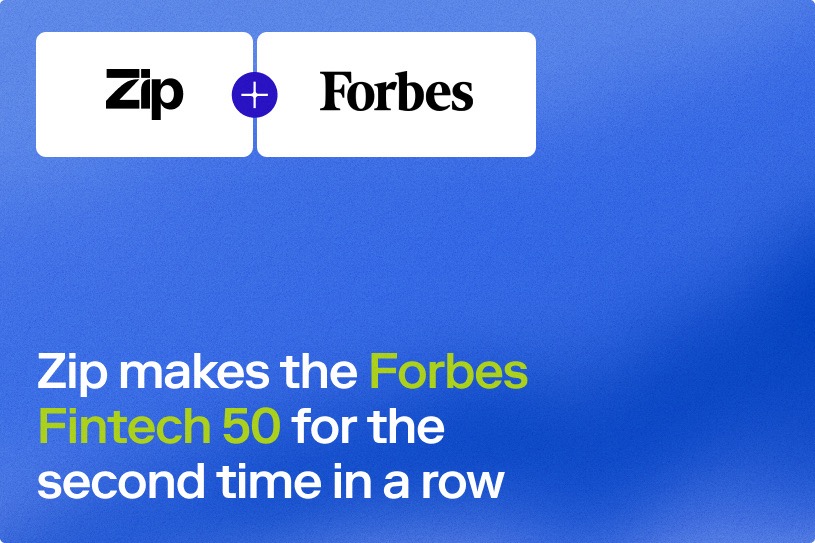
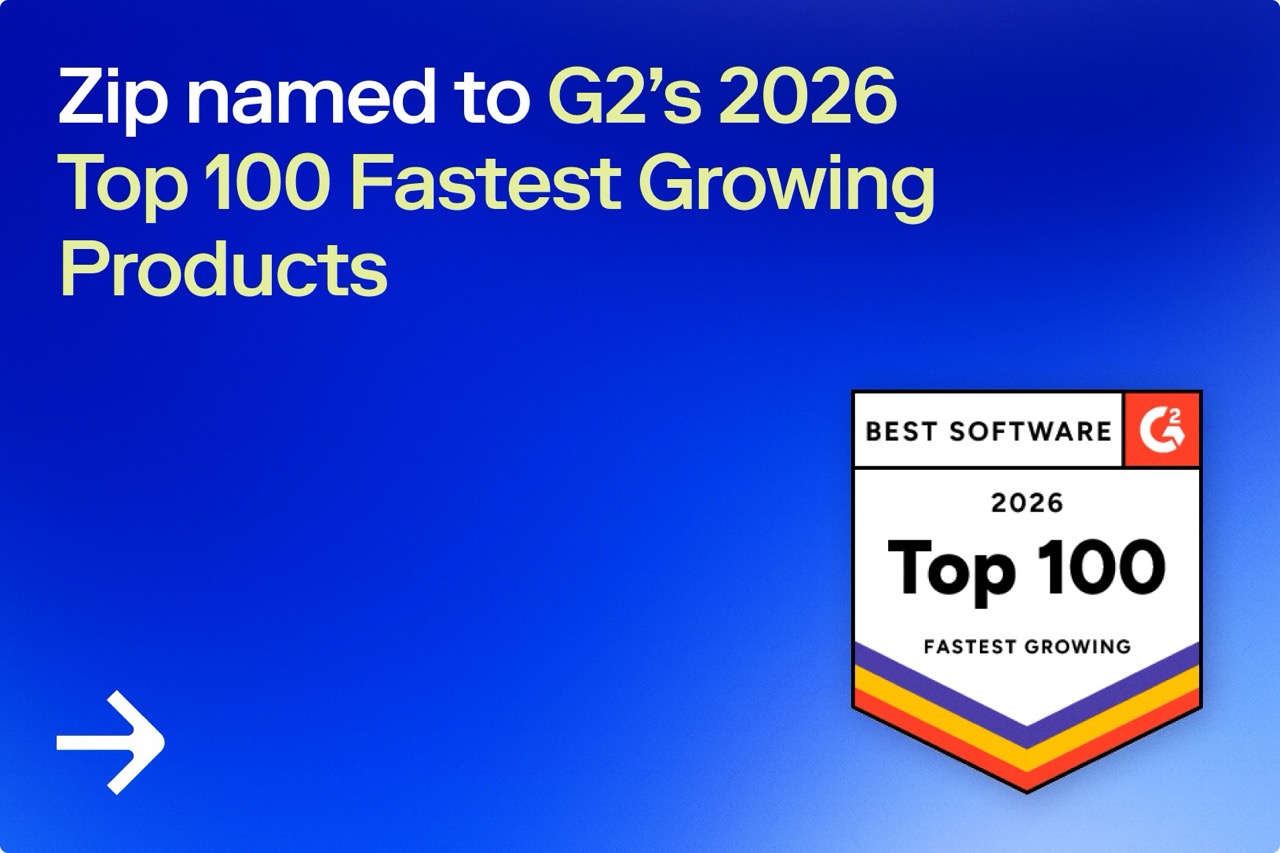


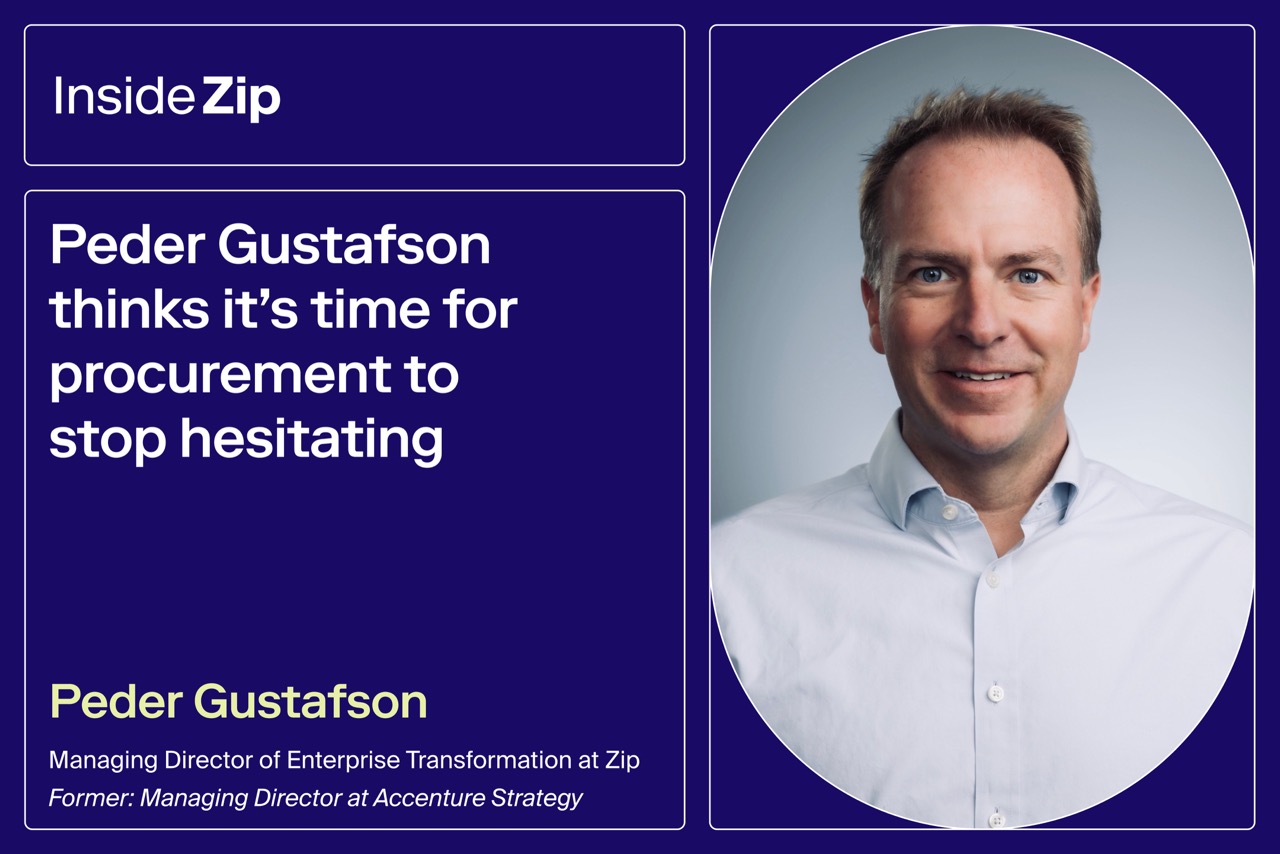
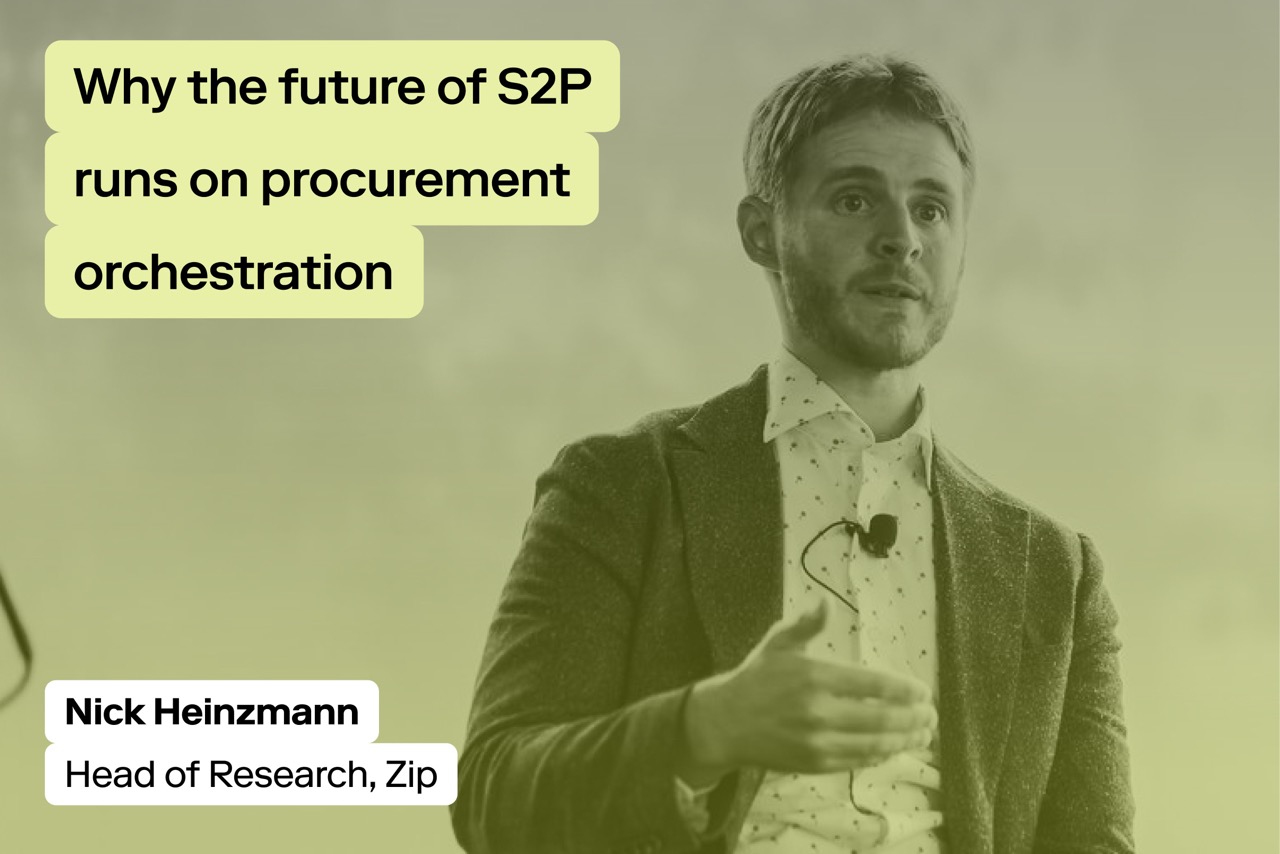
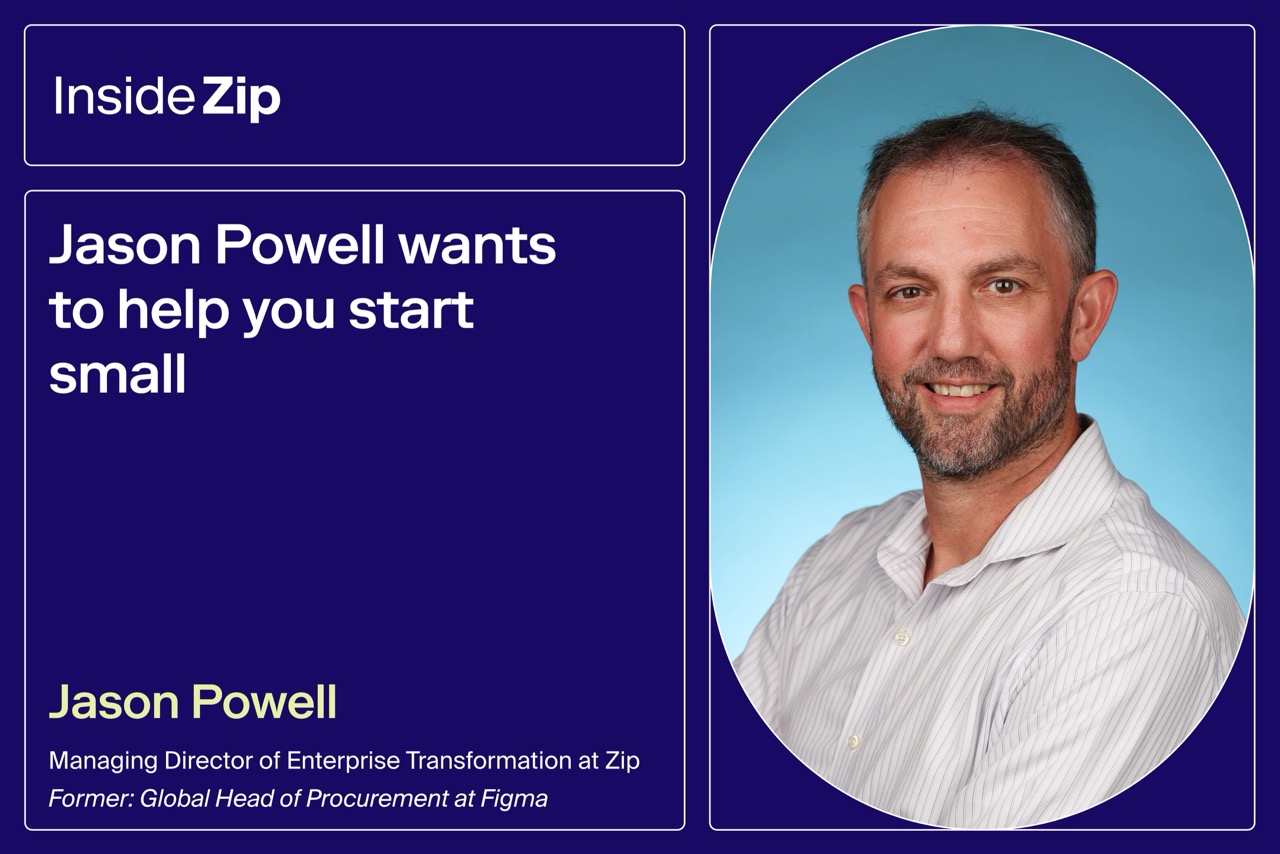

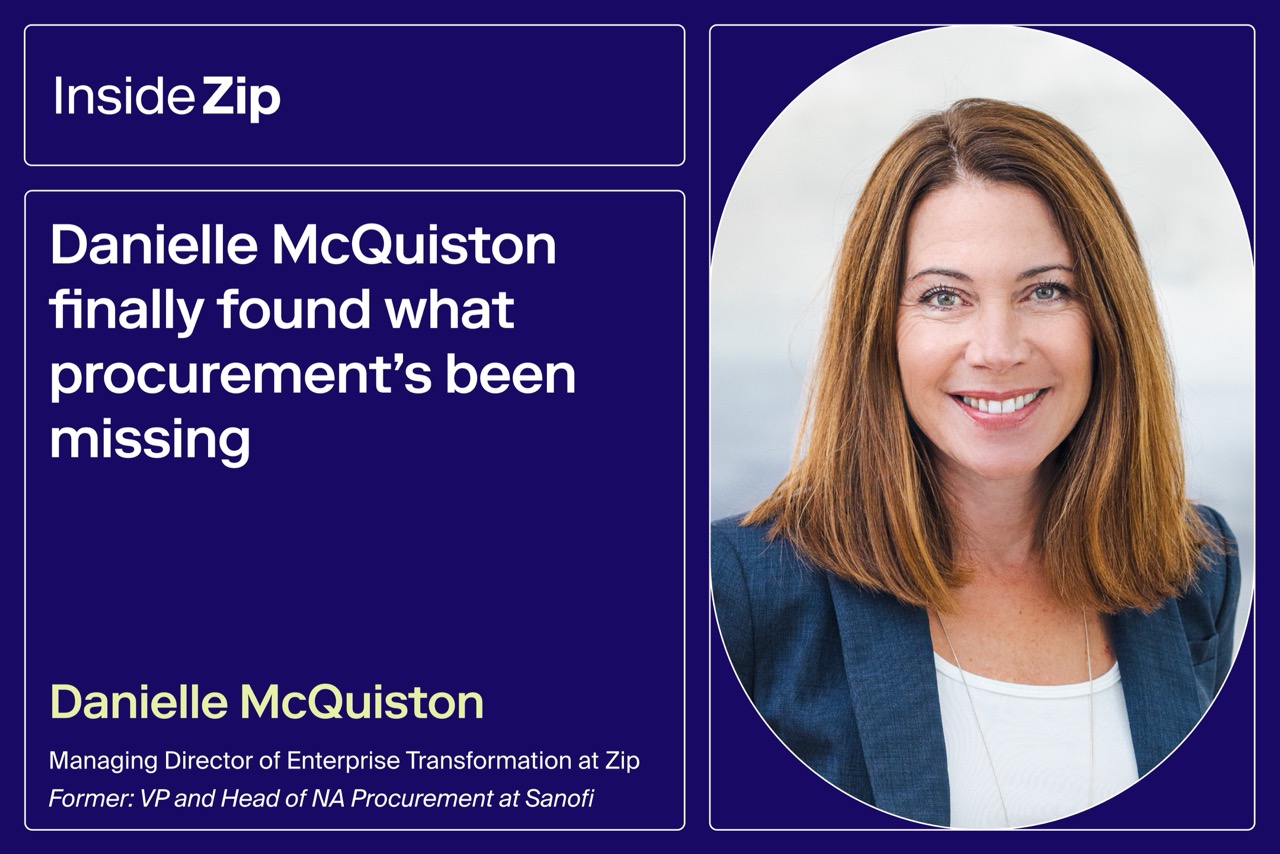

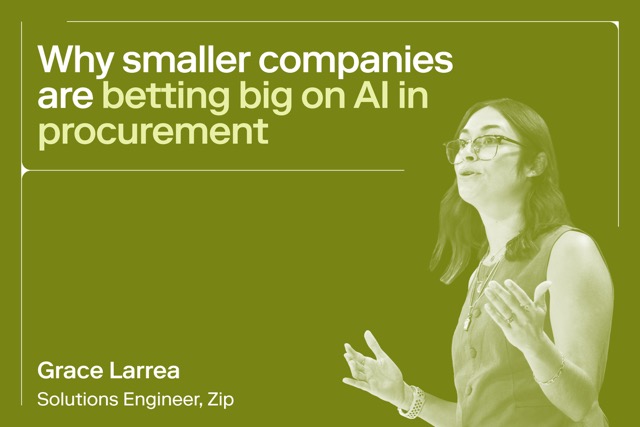

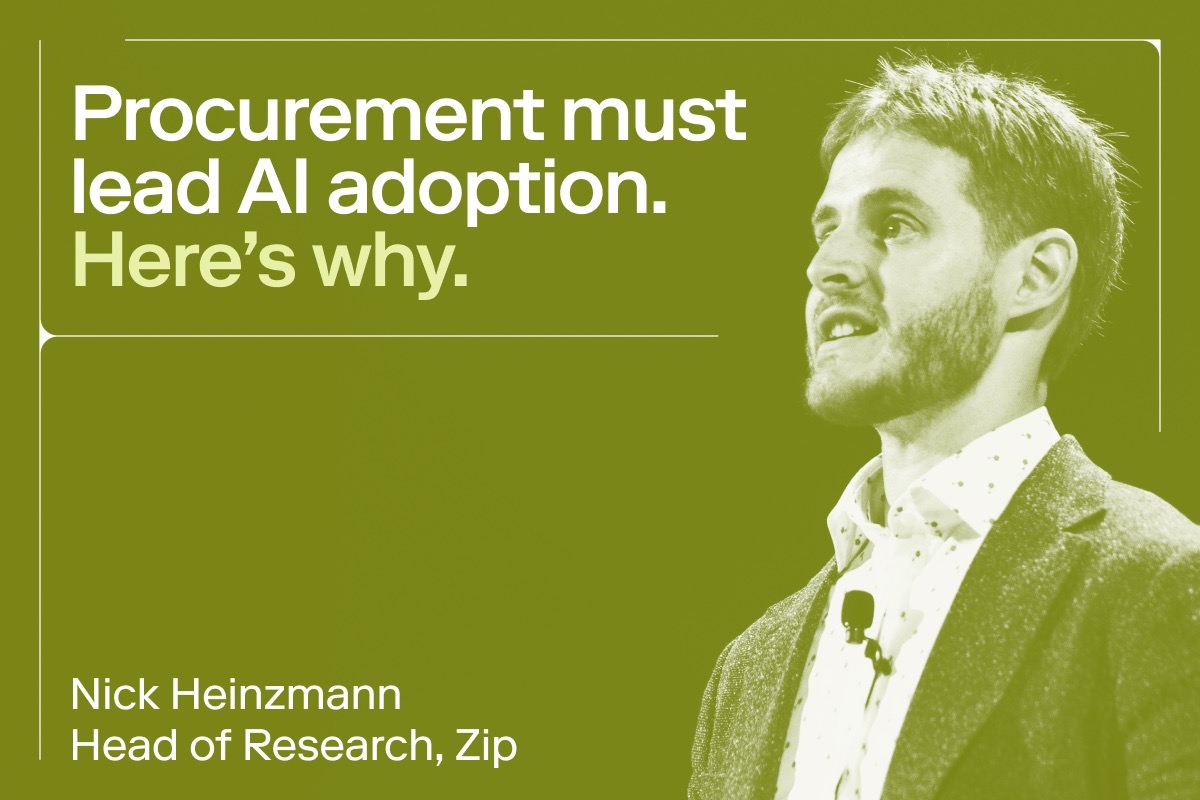









%20Large.jpeg)
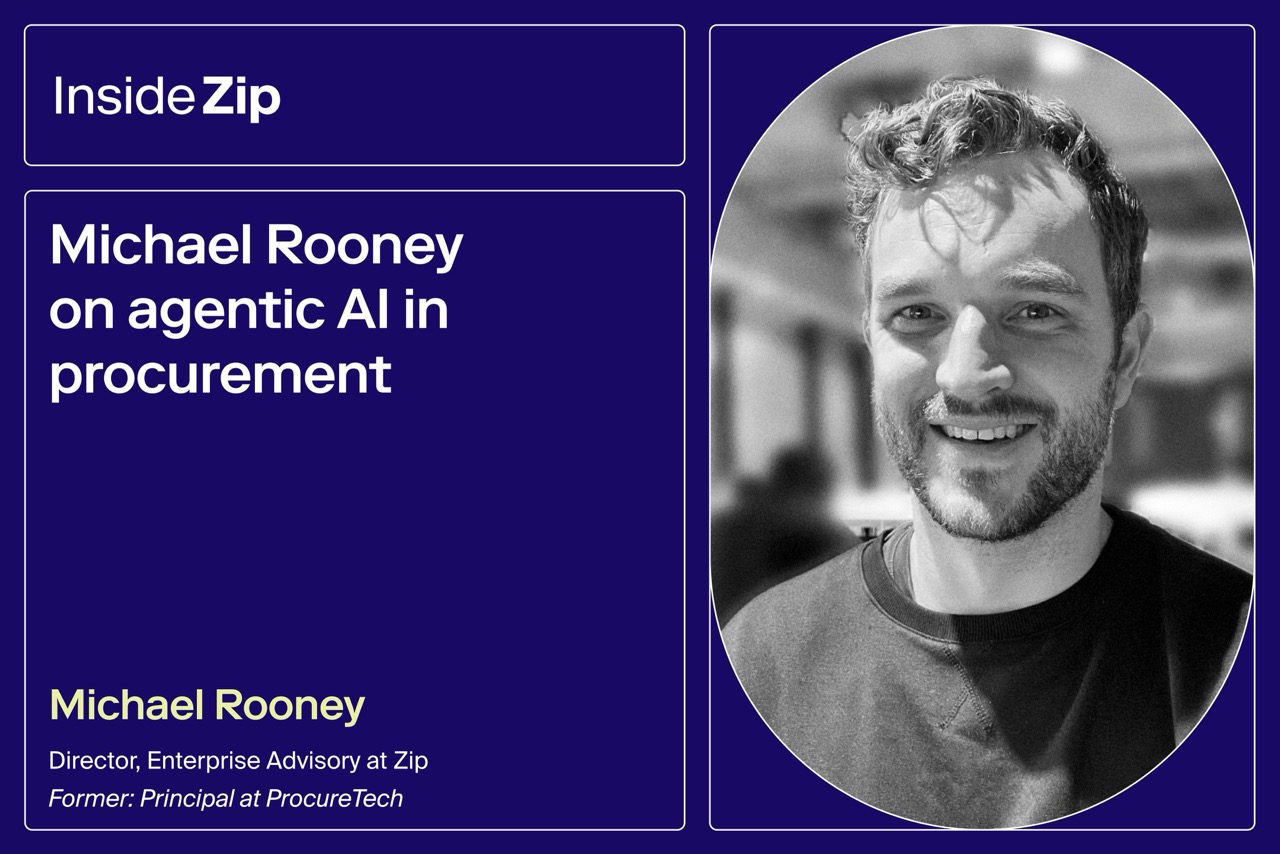




.webp)


















